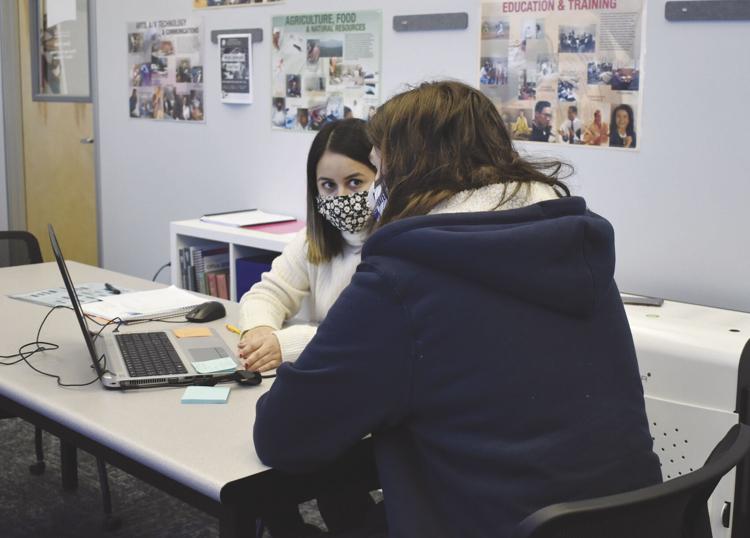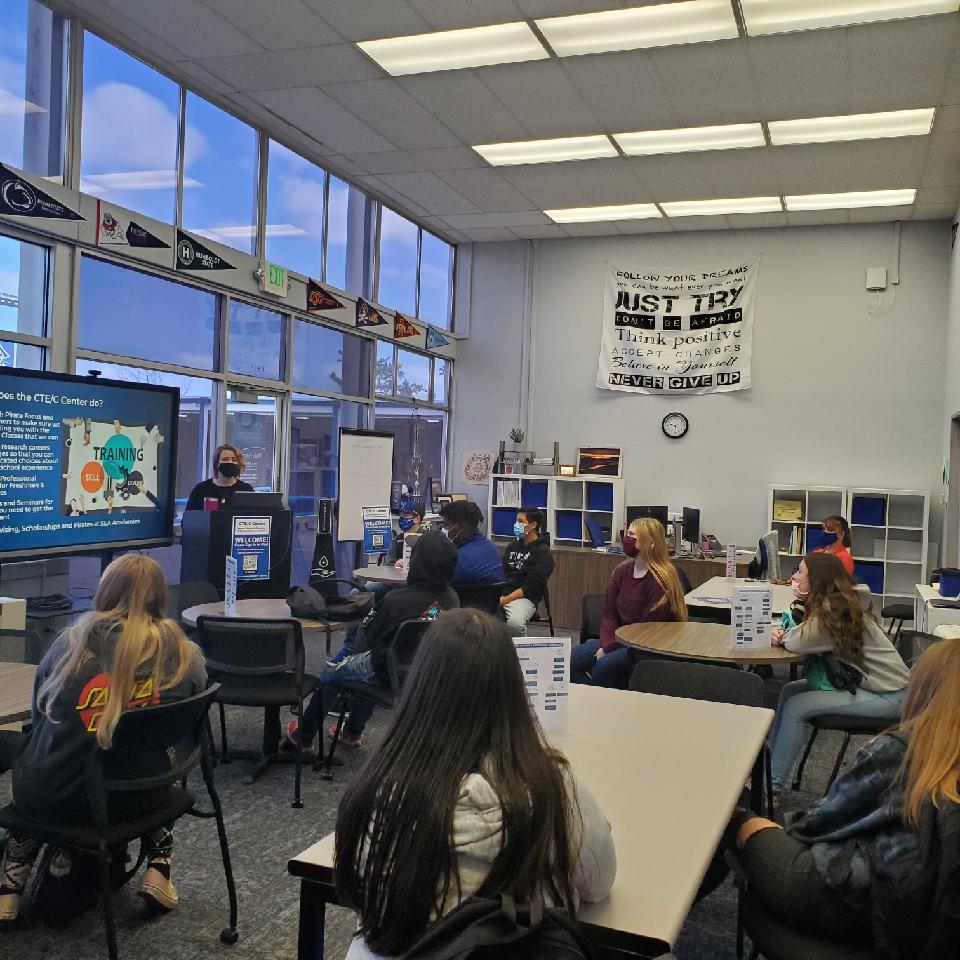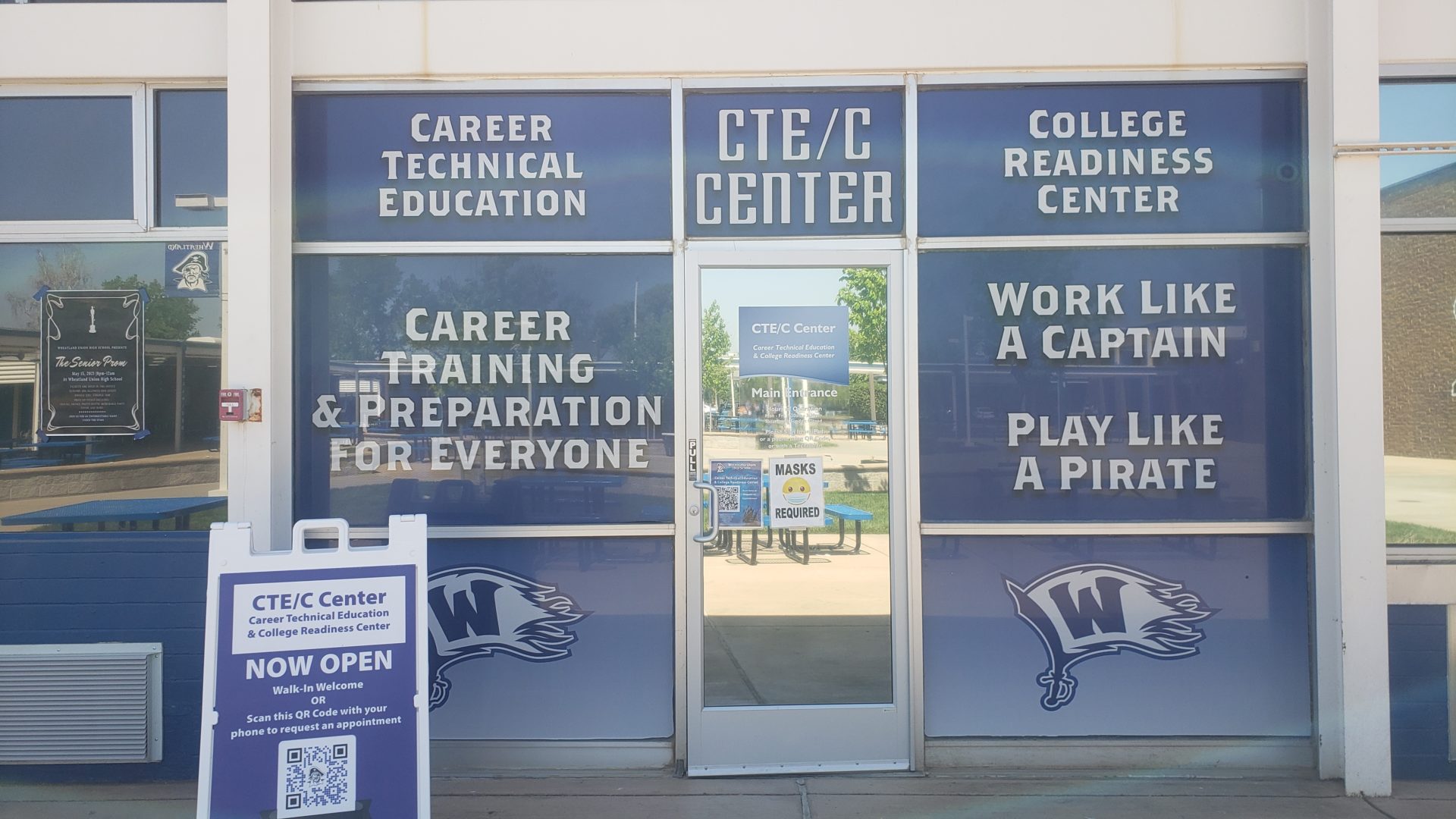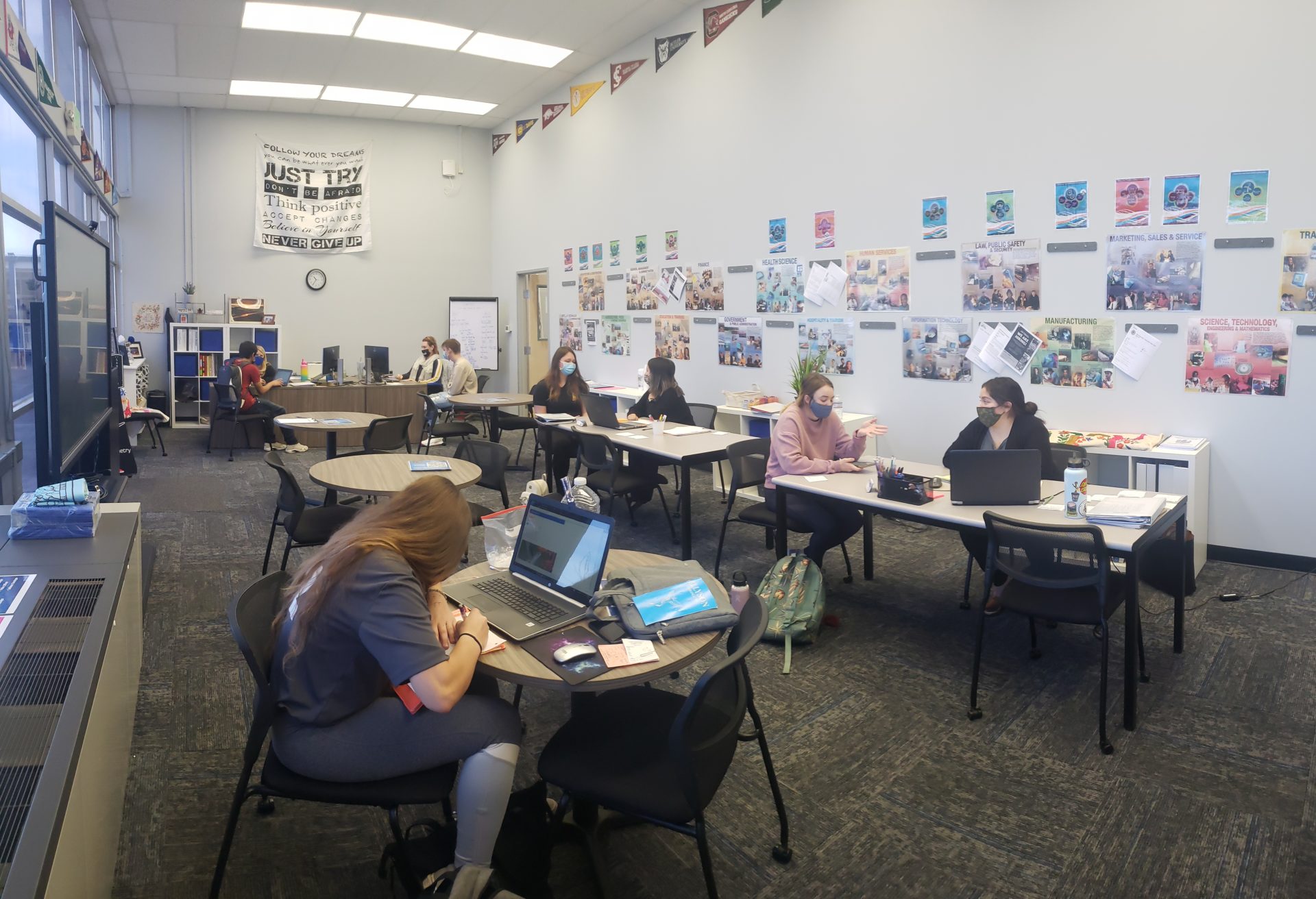News Center – May 2021
 While the world of work has transformed rapidly over the last 40 years, most K-12 schools haven’t kept up… and students know it. In a 2019 survey by the Ewing Marion Kauffman Foundation, while 84 percent of students felt like they were ready for college, only 60 percent were confident about careers.
While the world of work has transformed rapidly over the last 40 years, most K-12 schools haven’t kept up… and students know it. In a 2019 survey by the Ewing Marion Kauffman Foundation, while 84 percent of students felt like they were ready for college, only 60 percent were confident about careers.
That confidence comes with experience, and in the Wheatland Union High School District, it’s all part of the curriculum. With three cutting-edge learning centers anchoring career ed on campus, 100 percent of Wheatland students undertake an unconventional CTE curriculum.
“We really believe that it’s not a college or career choice — that it’s both,” says Superintendent Nicole Newman. Her philosophy is that while not every student may choose to go to college, every single one will have a career. Thus, career readiness is key.
The value of early CTE exposure is especially apparent among employers. According to industry partner and Comfort Keepers home care owner Neil Goforth, the boost in career readiness will be a boon for the region’s future talent pipeline for decades to come.
“We’ve heard too many times that employers have passed over our area due to lack of a skilled workforce,” says Goforth. He cites a dire need for students to have critical soft skills, including communication, customer service and a professional attitude — skills they will now learn at Wheatland.
“Putting kids on the path to being good employees is a perfect start.”
 To that end, the District introduced the Get Focused, Stay Focused (GFSF) curriculum into social science courses this year with Strong Workforce support. Each first-year student now charts a 10-year plan for success, instead of the limited four-year educational plan of the past. Using self- and career-exploration exercises, students build on their skills and envision a future that fits their unique aptitudes. Learners then review and update their plans throughout their high school journey so that by the time they graduate, they have the tools to make their dream job a reality.
To that end, the District introduced the Get Focused, Stay Focused (GFSF) curriculum into social science courses this year with Strong Workforce support. Each first-year student now charts a 10-year plan for success, instead of the limited four-year educational plan of the past. Using self- and career-exploration exercises, students build on their skills and envision a future that fits their unique aptitudes. Learners then review and update their plans throughout their high school journey so that by the time they graduate, they have the tools to make their dream job a reality.
“We’re teaching them the process of setting goals,” says Business Teacher and GFSF Lead Carol Keiser. “It becomes a holistic approach in helping students see that what they’re doing in high school really matters.”
The program is used by more than a thousand schools across the country, according to the instructor, and is already yielding significant payoffs. Schools are seeing a reduction in suspension rates and discipline issues while GPAs and attendance are on the rise.
According to Jacob Aust, high school sophomore and future firefighter, the chance to create a flexible 10-year life plan has been a game-changer.
“It’s cool to see exactly what I need to be in that job field,” says Aust, who is doing what he can now to prepare for a career on the frontlines. He’s leveraging his school’s Career Technical Education pathway in Business to give himself a running start. And when it comes to real-world relevance, especially in his Business Applications class, he says, “A lot of that is actually going to help with what I want to do after school.”
The brand-new business classes are part of the emerging Pirates at SEA (Scholar Enrichment Academies) program. With support from Strong Workforce funding, pathways will be offered through the agriculture and business programs, providing dual credit and articulated classes to high-achieving high schoolers.
 Thanks to a partnership with Yuba College, learners can earn anywhere from 39 to 60+ college credits, putting them on the fast track to CTE degrees and careers. Supportive cohorts, limited to about 35 students per graduating class, are slated to start this summer. With advisory meetings just getting underway for the business program, the possibilities are endless.
Thanks to a partnership with Yuba College, learners can earn anywhere from 39 to 60+ college credits, putting them on the fast track to CTE degrees and careers. Supportive cohorts, limited to about 35 students per graduating class, are slated to start this summer. With advisory meetings just getting underway for the business program, the possibilities are endless.
“A student could graduate with a high school diploma and an associate degree the same week,” muses Newman.
So far, 88 students have enrolled and will take at least one college course over the summer to kick off their studies. Most classes will be offered at the high school, with Strong Workforce funding eventually connecting students to Yuba College for advanced courses. According to the superintendent, “We have a lot of really motivated kids ready to go.”
When it comes to innovative career assistance, accelerated programs are just the beginning. The school is also building three learning centers on campus, with braided support from Strong Workforce and a Department of Defense STEAM grant.
The first is the “C Tech” or CTE and College Readiness Center, which has been operating in a limited capacity while the new building prepares to open. The center assists students with their 10-year career plans while acting as a resource hub for GFSF teachers.
“We’re here to support students academically as far as their college and career decisions,” says new Academic Technician Maria Mireles.
Mireles says the school offers convenient QR codes that students scan to make appointments for everything from career exploration and planning to obtaining a work permit. Learners can meet in-person, on the phone or via Zoom, and they can also participate in college- and career-readiness events. The most recent examples? A virtual college fair, as well as an admissions how-to, hosted by the District in partnership with Chico State. “We are bringing as many resources as we can to students,” says the technician.
Currently sharing a space with the C Tech Center, the “We Work” Center helps students with job searches and readiness. Meanwhile, the work-based learning center is creating internships, apprenticeships and job shadowing opportunities for future career professionals.
According to Technician Erin Bertolini, the new center has been a lifeline for students, especially when it comes to juniors and seniors. “They don’t know how to even look for jobs, let alone apply for them or create resumes or cover letters,” she says.
 Bertolini has spent the semester proudly connecting students with job interviews, and she says the hard work is starting to pay off. “One of them came back … and said, ‘Hey, I landed the job!’
Bertolini has spent the semester proudly connecting students with job interviews, and she says the hard work is starting to pay off. “One of them came back … and said, ‘Hey, I landed the job!’
“We were ecstatic.”
The technician has made it her passion to prepare students for the real world. And with the new designated space coming soon for the We Work Center, she’s looking forward to helping many more students launch their first jobs.
“We’re doing as much as we can out of this one building,” says Bertolini. “But I already know that as soon as we have all three up and running at the same time, we’re going to be a powerhouse.”
Another important priority is institutional support for families in the Service. Due to the District’s proximity to Beale Air Force Base, about 10 percent of students come from military families, with many transitioning in the middle of the school year. The new Tutoring and Transition Center will offer walk-in tutoring for students of all ages and high-touch support for learners from military families. It is expected that the extra welcome will help students stay on track for college and career goals, and the best part is that they won’t even need to ask.
“What is unique about the services is that we are very proactive here,” says Counseling Intern and Master’s Candidate Shawna Hulsey, who will be offering high-level support to students in the Pirate SEA program and beyond.
While other learning centers might wait for the students to come to them, Wheatland faculty actively check in throughout the school year. As Hulsey says, “We’re really reaching out … to students to make sure they know the resources that are available to them.”
For Aust, the support is beneficial not only for boosting confidence but also for building on his passion for following his chosen career path. He considers the C Tech Center “a good place to keep up on your work and stay focused,” and he especially appreciates the help in performing job searches and writing resumes. With those tools at hand, he knows he’ll have an easier time when he’s ready to apply for his first position.
“When it does come up, I’ll have some experience on how to do it, and it’s not like I’ll be blindsided.”
The aspiring firefighter is most thankful that he’ll be fully prepared for the real world by the time he graduates. Counselors “aren’t just throwing us out there,” says Aust. “We are actually going to learn the things that we need after school.”
Sources
Visions of the Future, the Ewing Marion Kauffman Foundation
https://www.kauffman.org/wp-content/uploads/2019/09/Visions-of-the-Future_v3.pdf